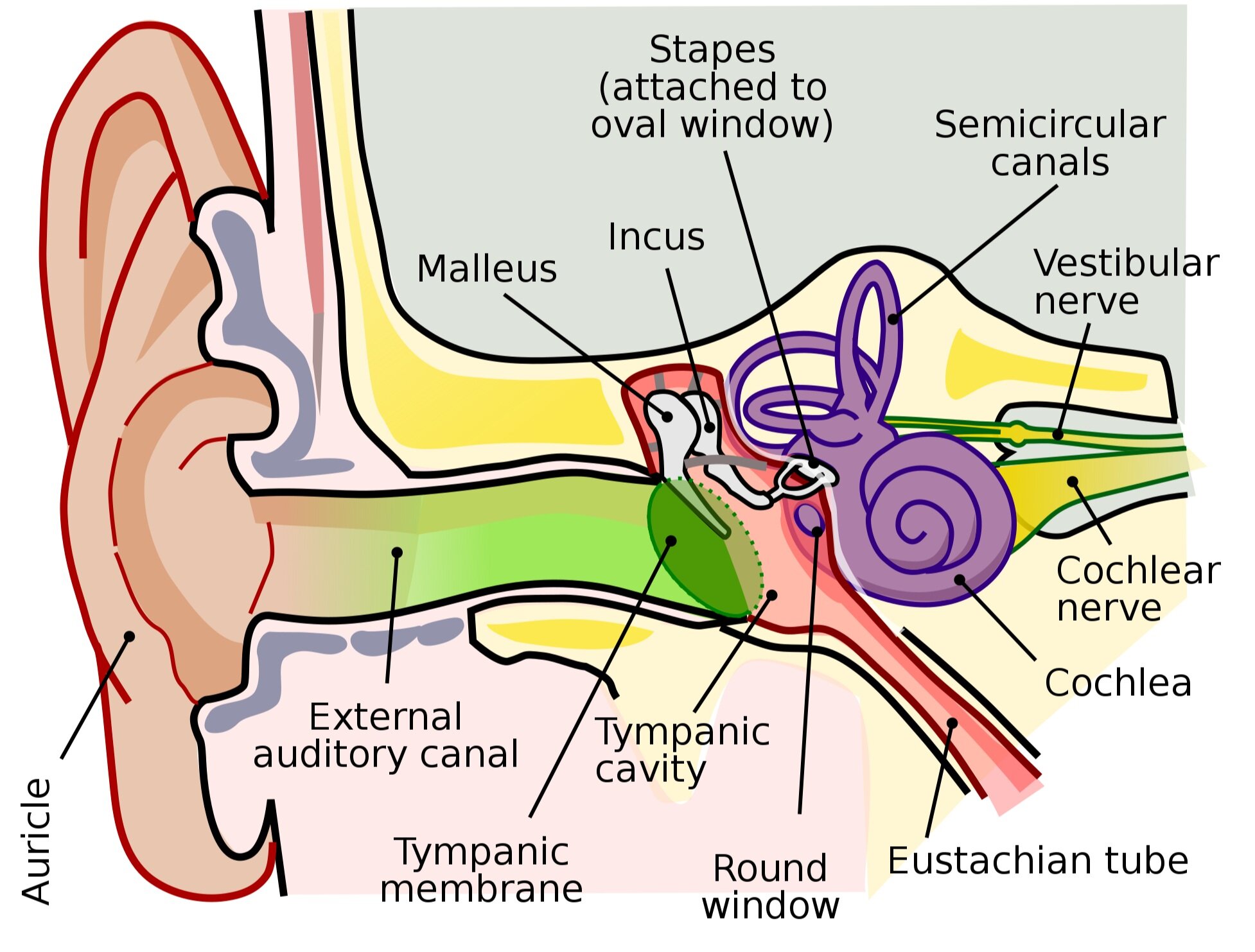Dizziness from my ear?
Before considering how the ear causes dizziness, we must understand the function of our ear. Most of us know that the small body parts on either side of our head, known as our ears, are used for hearing. But if we go a bit deeper, we will end up in the area called the inner ear. This is where our cochlea (organ of hearing) and our vestibular organs (organs of balance) are situated. These organs of balance make up our vestibular system and they are located deep in the temporal bone of the skull and are smaller than the size of a dime. This area is essential for normal movement and balance!
The vestibular system
The vestibular system has 3 semicircular canals which are filled with fluid and they are responsible for detecting the movement and position of our head. We also have 2 otolith organs called the saccule and utricle - these detect gravity and acceleration movements such as when we are in an elevator, or going down a roller coaster drop, and also when we speed up or slow down. All the information detected by the vestibular system is taken to our brain through the vestibular nerve. Our brain then processes the information and through very fast vestibular reflexes so we can stay balanced and upright, but what many people are surprised to learn is that the vestibular system helps us see the world clearly when our head is moving.
If for any reason one side is not functioning well, due to a virus, trauma, disease, medication toxicity, a benign tumour or even excessive alcohol intake, we will have symptoms. Symptoms often include dizziness and/or vertigo, unsteadiness on our feet and difficulty focusing our eyes when the head is moving. It may look like the world is bouncing every time we step or it may seem the world lags every time we move our head (this symptom is called oscillopsia). Many patients also have nausea and vomiting when they are dizzy.
Vestibular Reflexes
Vestibular Spinal Reflex > acts on our postural muscles to allow us to stay balanced and upright
Vestibular Colic Reflex > acts on our neck muscles to keep our head stable
Vestibular Ocular Reflex > the fastest reflex in our body! acts on the muscles of our eyes to allow our eyes/gaze to remain fixed on a particular point when we move our head
How do you know if my ear is making me dizzy?
There are many ways the inner ear can be tested to figure out what is causing symptoms. The most important way is through a detailed history. We ask you questions such as:
how long is your dizziness lasting? Is it seconds, minutes, hours or days?
is it constant or is it coming on for short or long bursts?
did you only have one dizzy spell followed by symptoms of imbalance or are you having ongoing spells
did you never experience dizziness, but just noticed your balance is quite affected when you are on your feet and do you have difficulty focusing your eyes when you move?
The answers to these questions really help narrow down the diagnosis. After that, physical hands-on tests and lab tests that can evaluate each and every part of the inner ear can confirm the source of your symptoms. Once a diagnosis is found, there are many treatment options to reduce the dizziness and improve quality of life. These treatments can include medication, surgery, dietary changes, and/or vestibular physiotherapy.
Our expert vestibular physiotherapists can help you to figure out if it is your inner ear causing dizziness. You may know that there are many other causes of dizziness - medications, the brain, the heart, and the #1 symptom of anxiety and panic attacks is dizziness. It is important to rule out these other causes and find the correct diagnosis as the first step to getting better. We would be happy to help!


